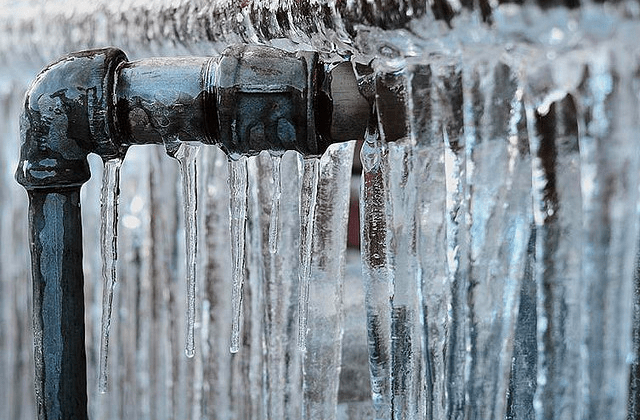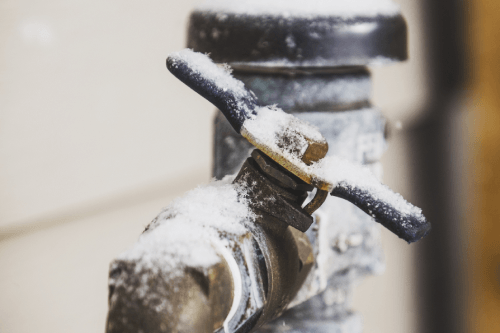Important Advice for Avoiding Frozen Pipes in Cold Weather Seasons
Important Advice for Avoiding Frozen Pipes in Cold Weather Seasons
Blog Article
Everyone will have their personal theory with regards to How to Prevent Your Pipes From Freezing.

Cold weather can damage your plumbing, particularly by freezing pipes. Below's exactly how to prevent it from occurring and what to do if it does.
Introduction
As temperature levels decline, the danger of icy pipes boosts, potentially causing pricey repair work and water damages. Understanding exactly how to stop icy pipelines is vital for home owners in cold climates.
Avoidance Tips
Shielding vulnerable pipelines
Wrap pipes in insulation sleeves or utilize warm tape to shield them from freezing temperature levels. Concentrate on pipelines in unheated or external areas of the home.
Heating methods
Keep interior spaces sufficiently heated up, especially locations with pipes. Open up cabinet doors to permit cozy air to distribute around pipes under sinks.
How to identify icy pipes
Search for lowered water circulation from taps, uncommon odors or noises from pipelines, and visible frost on exposed pipelines.
Long-Term Solutions
Structural modifications
Think about rerouting pipelines away from exterior walls or unheated locations. Include extra insulation to attics, basements, and crawl spaces.
Upgrading insulation
Purchase premium insulation for pipes, attic rooms, and walls. Proper insulation assists keep consistent temperatures and lowers the threat of frozen pipelines.
Safeguarding Outside Plumbing
Yard hoses and exterior faucets
Detach and drain pipes yard tubes prior to winter. Install frost-proof spigots or cover outside faucets with shielded caps.
Understanding Frozen Pipelines
What causes pipes to ice up?
Pipelines freeze when exposed to temperature levels below 32 ° F (0 ° C) for extended durations. As water inside the pipelines ices up, it broadens, taxing the pipeline walls and possibly triggering them to break.
Dangers and damages
Icy pipelines can cause water system interruptions, residential or commercial property damage, and pricey repair work. Burst pipes can flooding homes and cause considerable architectural damage.
Signs of Frozen Pipes
Determining frozen pipes early can stop them from bursting.
What to Do If Your Pipes Freeze
Immediate activities to take
If you believe icy pipelines, maintain faucets open to eliminate stress as the ice thaws. Use a hairdryer or towels taken in warm water to thaw pipelines slowly.
Verdict
Avoiding icy pipelines calls for aggressive actions and quick reactions. By recognizing the reasons, signs, and safety nets, home owners can shield their pipes during winter.
6 Proven Ways to Prevent Frozen Pipes and Protect Your Home
Disconnect and Drain Garden Hoses
Before winter arrives, start by disconnecting your garden hoses and draining any remaining water. Close the shut-off valves that supply outdoor hose bibs and leave the outdoor faucet open to allow any residual water to drain. For extra protection, consider using faucet covers throughout the colder months. It’s also important to drain water from any sprinkler supply lines following the manufacturer’s directions.
Insulate Exposed Pipes
Insulating your pipes is an effective way to prevent freezing. Pipe insulation is readily available at home improvement stores and is relatively inexpensive. Pay close attention to pipes in unheated areas such as the attic, basement, crawl spaces, or garage. Apply foam insulation generously to create a buffer against the cold. You can also wrap your pipes in heat tape or thermostat-controlled heat cables for added warmth.
Seal Air Leaks
Inspect your home for any cracks or openings that could let in cold air. Seal any holes around the piping in interior or exterior walls, as well as the sill plates where your home rests on its foundation. Additionally, make sure to keep your garage door closed unless you’re entering or exiting. Leaving it open creates a significant air leak that can lead to frozen pipes.
Allow Warm Air Circulation
During cold snaps, it’s essential to allow warm air to circulate evenly throughout your home. Leave interior doors ajar to promote better airflow. Open kitchen and bathroom cabinets to help distribute heat consistently around the rooms. If you have small children or pets, be sure to remove any household chemicals or potentially harmful cleaners from open cabinets for safety.
Let Faucets Drip
A small trickle of water can make a big difference in preventing ice formation inside your pipes. When temperatures drop significantly, start a drip of water from all faucets served by exposed pipes. This continuous flow helps prevent the water from freezing. Additionally, running a few faucets slightly can relieve pressure inside the pipes, reducing the chances of a rupture if the water inside does freeze.
https://choateshvac.com/6-proven-ways-to-prevent-frozen-pipes-and-protect-your-home/

Hopefully you enjoyed our article about Helpful Tips to Prevent Frozen Pipes this Winter. Many thanks for finding the time to browse our posting. In case you appreciated our article if you please consider to share it. Thank-you for taking the time to read it.
Click Here Report this page